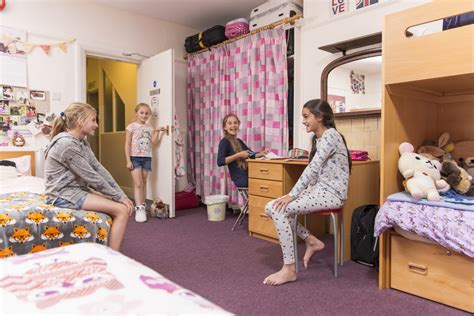English boarding schools are renowned for their academic excellence, rich history, and transformative experiences. If you’re considering sending your child to one, here’s a comprehensive guide to what life is like within these prestigious institutions.

A Day in the Life
A typical day at a boarding school begins early, with students waking up for breakfast at around 7:30 am. After morning assembly, they attend academic classes from 9:00 am to 12:30 pm. Lunch follows, providing a brief respite before classes resume from 1:30 pm to 3:00 pm. The afternoon is often dedicated to sports, extracurricular activities, or study time.
Dinner is typically served at 6:00 pm, followed by evening prep time. During this period, students have supervised study sessions and complete homework assignments. Lights out is typically at 10:00 pm for younger students and 11:00 pm for older ones.
Academic Life
English boarding schools offer a rigorous academic curriculum that emphasizes critical thinking, analytical skills, and intellectual curiosity. Students typically take a core set of subjects, including English, mathematics, science, history, geography, and a modern foreign language.
The teacher-to-student ratio is typically low, allowing for individualized attention and personalized learning. Boarding schools also provide ample opportunities for students to pursue their interests, with a wide range of extracurricular activities, clubs, and societies.
Sports and Activities
Sports play an integral role in the boarding school experience. Most schools offer a variety of team and individual sports, including rugby, football, cricket, hockey, tennis, and swimming. Students are encouraged to participate in at least one sport, as it promotes physical fitness, teamwork, and sportsmanship.
In addition to sports, boarding schools also offer a wide range of extracurricular activities. These include music, drama, art, debating, chess, and student government. Participation in these activities helps students develop their creativity, leadership skills, and social confidence.
House System
Many boarding schools use a house system to foster a sense of community and belonging among students. Students are assigned to a specific house, which becomes their home away from home. Each house has its own common room, dining area, and dormitory.
The housemaster or housemistress acts as a mentor and guide for students in their house. They provide support, guidance, and encouragement throughout the school year. The house system also encourages healthy competition between houses, with students often participating in sports, debates, and other competitions.
Discipline and Values
Boarding schools have a strong emphasis on discipline and values. Students are expected to adhere to the school’s rules and regulations, which are designed to promote respect, responsibility, and accountability.
Schools also place great importance on developing character and leadership qualities. Through various programs and initiatives, they aim to foster ethical decision-making, compassion, empathy, and a sense of service to others.
Benefits of Attending an English Boarding School
There are numerous benefits to attending an English boarding school. These include:
- Academic excellence: Boarding schools offer a rigorous academic curriculum that prepares students for success in higher education and beyond.
- Personal growth: Boarding school provides students with a unique opportunity to develop independence, self-reliance, and resilience.
- Community and belonging: The house system fosters a sense of community and belonging among students.
- Extracurricular opportunities: Boarding schools offer a wide range of extracurricular activities, sports, and clubs, allowing students to pursue their interests and develop new skills.
- International exposure: Boarding schools attract students from all over the world, providing opportunities for cultural exchange and global perspectives.
Common Mistakes to Avoid
There are some common mistakes that parents and students should avoid when considering an English boarding school. These include:
- Not doing your research: It’s crucial to thoroughly research different schools to find one that aligns with your child’s needs and interests.
- Underestimating the cost: Boarding schools can be expensive, so it’s important to factor in all the costs, including tuition, fees, and living expenses.
- Expecting your child to fit in immediately: Boarding school can be a challenging transition, so it’s important to be patient and supportive while your child adjusts.
- Overpacking: Boarding schools typically provide everything that students need, so it’s important to pack light and leave unnecessary items at home.
- Not staying in touch: It’s important to stay in regular contact with your child while they are away at boarding school. This helps maintain a strong bond and allows you to support them from afar.
How to Choose the Right Boarding School
There are a few key factors to consider when choosing an English boarding school. These include:
- Academic reputation: Research the school’s academic track record, including its exam results and university destinations.
- Location: Consider the school’s location and how far it is from your home.
- Size and environment: Some boarding schools are large and urban, while others are smaller and more rural. Choose a school that matches your child’s personality and preferences.
- Extracurricular activities: Make sure the school offers a range of extracurricular activities that your child is interested in.
- Values and ethos: Choose a school that aligns with your family’s values and beliefs.
Conclusion
Attending an English boarding school is a transformative experience that can provide students with numerous academic, personal, and social benefits. However, it’s important to do your research and choose a school that is the right fit for your child. By following the tips outlined in this guide, you can help your child make the most of their boarding school journey.
